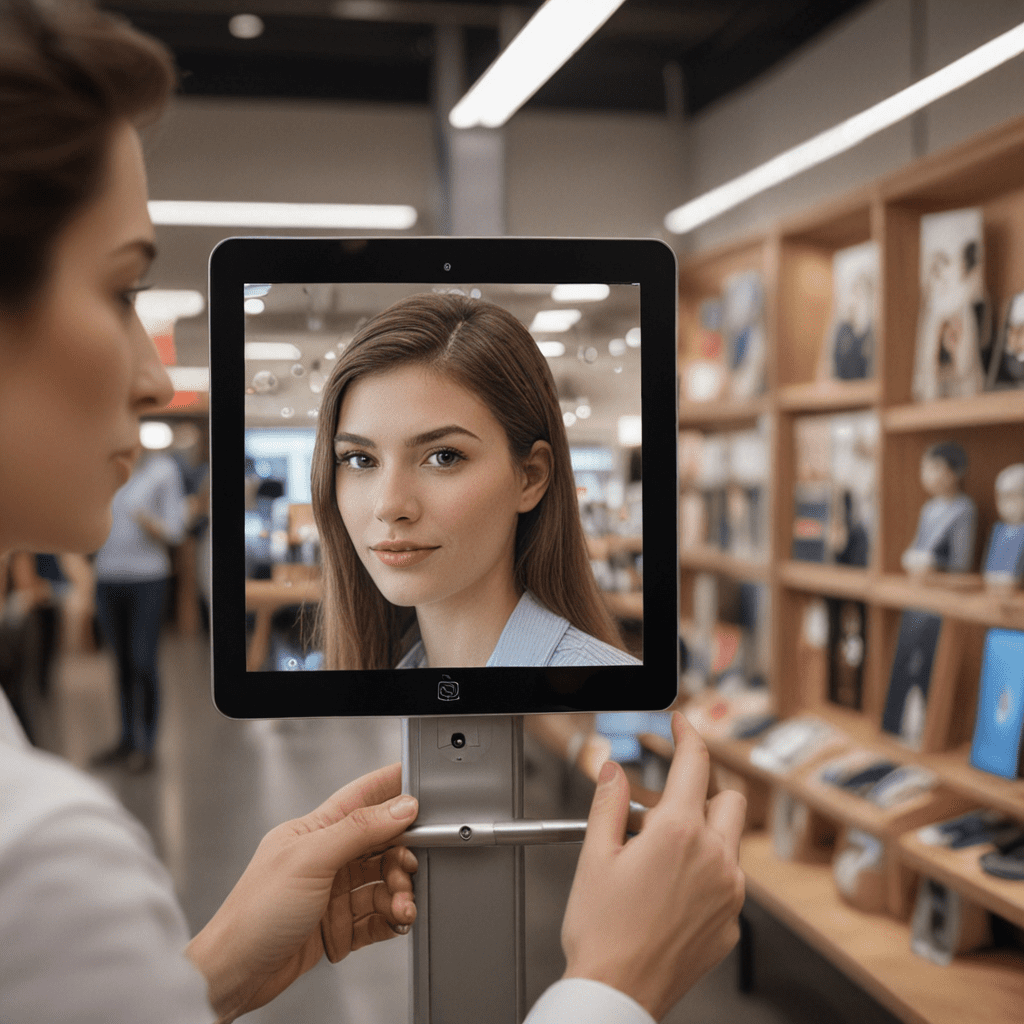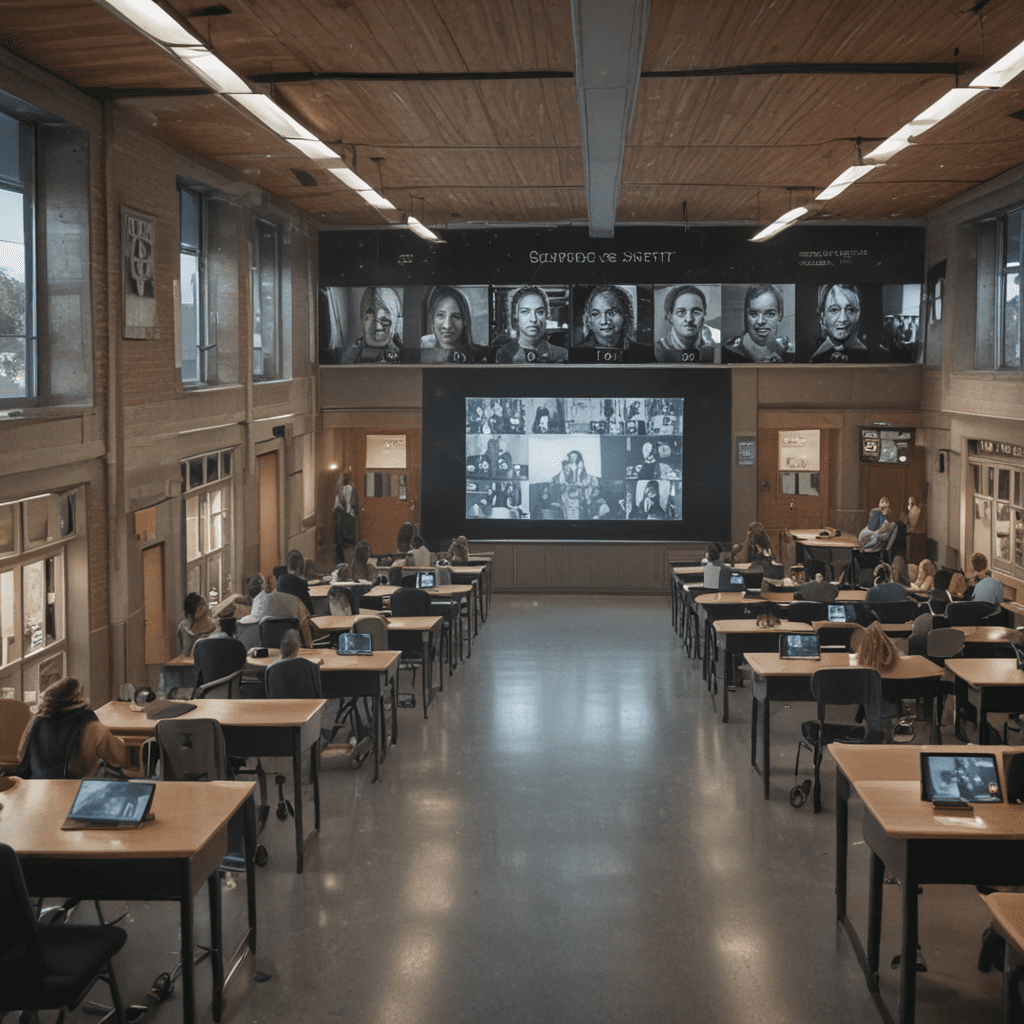
Introduction: Facial Recognition in the Retail Landscape
In the ever-evolving retail industry, personalization and customer experience have taken center stage. Facial recognition technology has emerged as a game-changer, enabling retailers to achieve these goals and transform the way they engage with customers. This advanced technology offers a wide range of benefits, including personalized experiences, targeted marketing, and enhanced security, making it a valuable tool for businesses looking to thrive in the modern retail environment.
Understanding Facial Recognition Technology
Facial recognition is a biometric technology that uses unique facial characteristics to identify an individual. By capturing and analyzing data points from facial features, it creates a digital representation that can be used for authentication and recognition purposes. This technology works through a sophisticated combination of algorithms, machine learning, and computer vision, allowing it to recognize and match faces even with changes in expression or appearance over time.
Benefits of Implementing Facial Recognition in Retail
Personalized Customer Experiences: Facial recognition enables retailers to create hyper-personalized customer experiences tailored to each individual. By recognizing returning customers, retailers can greet them by name, recall their preferences, and offer relevant recommendations based on previous interactions.
Targeted Marketing and Advertising: Facial recognition provides valuable data about customer demographics, behaviors, and preferences, enabling retailers to segment their audience for highly targeted marketing campaigns. By delivering personalized ads and promotions based on individual profiles, businesses can increase engagement and conversions.
Identifying and Rewarding Loyal Customers: Facial recognition helps identify and reward loyal customers. By recognizing repeat visitors, retailers can track their purchase history and offer loyalty rewards or exclusive discounts, encouraging continued patronage and building strong customer relationships.
Enhanced Security and Loss Prevention: Facial recognition technology enhances store security and loss prevention efforts. By detecting known shoplifters or individuals banned from premises, businesses can prevent theft and maintain a secure environment for customers and staff.
Improved Efficiency and Convenience: Facial recognition streamlines retail operations, allowing customers to pay for goods or access loyalty benefits simply by scanning their face. These contactless transactions offer a seamless and convenient shopping experience, reducing wait times and improving customer satisfaction.
Identifying and Rewarding Loyal Customers
Facial recognition technology enables businesses to identify and reward their most loyal customers. By recognizing repeat visitors, retailers can track their purchase history, identify patterns, and tailor personalized loyalty programs accordingly. These programs can include exclusive discounts, personalized recommendations, or special rewards for repeat purchases, encouraging customers to continue choosing that particular store or brand over competitors.
Enhanced Security and Loss Prevention
Facial recognition technology plays a crucial role in enhancing store security and loss prevention efforts. By integrating with existing surveillance systems, facial recognition can detect known shoplifters or individuals who are banned from the premises. When a recognized individual enters the store, the system can trigger an alert, allowing security personnel to take immediate action. Additionally, facial recognition technology can be used to identify suspicious behavior or patterns, helping to prevent theft and maintain a secure environment for both customers and staff.
Ethical Considerations and Data Privacy Concerns
While facial recognition technology offers significant benefits, it also raises important ethical and data privacy concerns. To address these concerns, retailers must ensure that they implement and use the technology in a responsible and ethical manner. This includes obtaining clear and informed consent from customers before collecting and using their facial data, adhering to strict data protection regulations, and using the technology only for legitimate purposes. Transparency, accountability, and robust data protection measures are crucial to maintain public trust and ensure ethical implementation.
Future Trends and Advancements in Facial Recognition
The field of facial recognition is constantly evolving, with advancements in technology promising even greater capabilities in the future. Innovations such as deep learning algorithms and artificial intelligence are enhancing the accuracy and efficiency of facial recognition systems. Additionally, the integration of facial recognition with other technologies, such as virtual and augmented reality, is expected to create new and immersive customer experiences. As technology continues to progress, facial recognition is poised to play an increasingly prominent role in shaping the future of retail and customer engagement.
Case Studies and Implementation Successes
Numerous retailers have successfully implemented facial recognition technology to enhance customer engagement and improve their operations. For example, Amazon Go stores use facial recognition to allow customers to enter the store, select items, and pay for their purchases without the need for checkout lines. Macy's has deployed facial recognition technology to personalize the shopping experience for its loyalty members, offering tailored recommendations and exclusive promotions. These successful implementations demonstrate the practical applications and benefits of facial recognition in the retail industry.
FAQ
Can customers opt out of facial recognition?
Customers should be given the option to opt out of facial recognition at any time. Retailers must obtain clear and informed consent before collecting and using an individual's facial data.
How is facial data stored and protected?
Retailers must adhere to strict data protection regulations to ensure that facial data is stored securely and used only for legitimate purposes. Encryption, anonymization techniques, and robust cybersecurity measures are essential to safeguard customer privacy.
What happens if my facial data is compromised?
In the event of a data breach, retailers must notify affected individuals promptly and take appropriate steps to mitigate any potential harm. This may include offering identity theft protection services or providing guidance on how to protect personal information.


